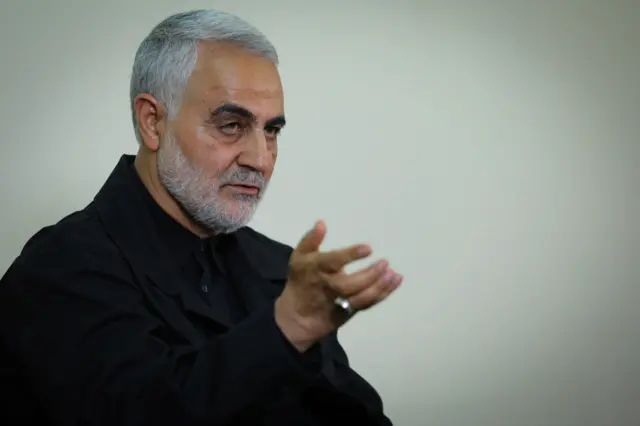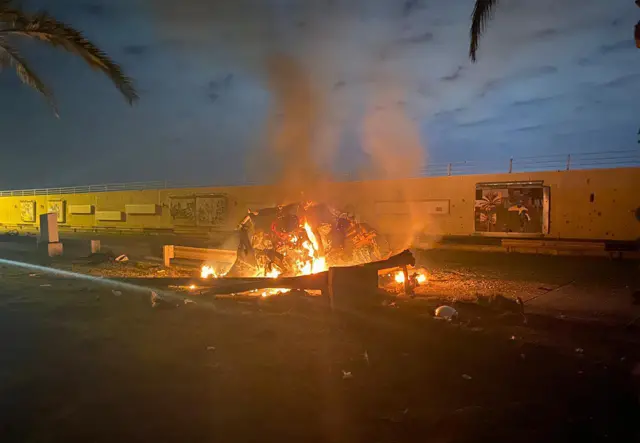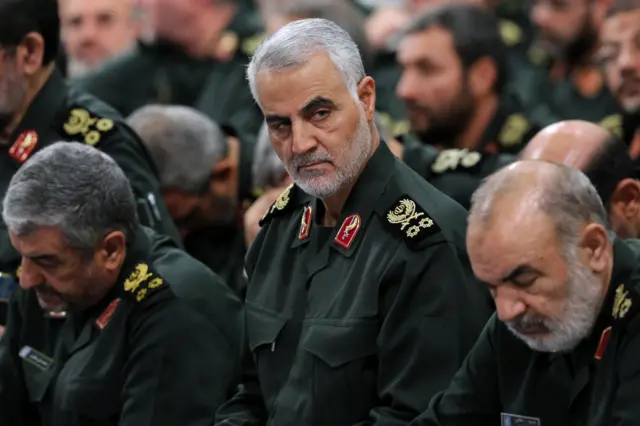Iranian military official says Israel will be 'mourning' soonpublished at 09:27 GMT 3 January 2020
 BBC Monitoring
BBC Monitoring
The world through its media
Iran's Islamic Revolution Guards Corps (IRGC) spokesman Brigadier-General Ramezan Sharif has said the US and Israel will receive a "tough response" for killing the commander of the IRGC's Quds Force, Qasem Soleimani.
"Today, the Israelis and Americans have committed a blatant crime at odds with all international regulations and laws and they should rest assured that they will receive a tough response," he said on television this morning.
Iran considers Israel its arch-foe, and has long accused it of being behind attacks against Iran.
He added that, while IRGC members are currently in mourning, "their determination to take revenge on the usurper Zionist and criminal America will be greater".
"Certainly the momentary joy of the Americans and Zionists will not last long and will turn into mourning," Sharif added.
Sharif went on to say that the IRGC will "begin a new chapter" after the death of Soleimani and that there are many eager to carry on his legacy.



